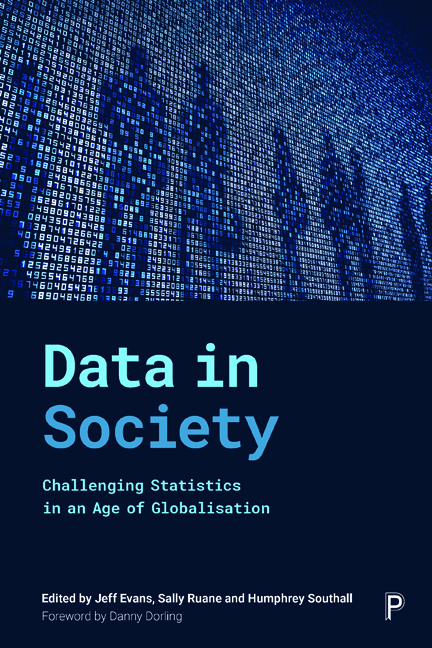Book contents
- Frontmatter
- Contents
- List of figures, tables and boxes
- Notes on contributors
- Foreword
- Preface
- General introduction
- Part I How data are changing
- Part II Counting in a globalised world
- Part III Statistics and the changing role of the state
- Part IV Economic life
- Part V Inequalities in health and wellbeing
- Part VI Advancing social progress through critical statistical literacy
- Epilogue: progressive ways ahead
- Index
Foreword
Published online by Cambridge University Press: 30 April 2022
- Frontmatter
- Contents
- List of figures, tables and boxes
- Notes on contributors
- Foreword
- Preface
- General introduction
- Part I How data are changing
- Part II Counting in a globalised world
- Part III Statistics and the changing role of the state
- Part IV Economic life
- Part V Inequalities in health and wellbeing
- Part VI Advancing social progress through critical statistical literacy
- Epilogue: progressive ways ahead
- Index
Summary
This is the third book in a long-running series, each one (and much else besides) initiated by the Radical Statistics Group. In 1979, the first book, Demystifying Social Statistics, revealed how social statistics are constructed and controlled in ways that serve the powerful, and argued that they needed to be contextualised, critiqued and reconstructed. Statistics at that time were most closely associated with the state. Although they were not to know it, the authors of that first volume were writing just before a government would take power that had great disregard for the validity of both social data and society itself – Margaret Thatcher famously claimed ‘There is no such thing as society’. The Conservatives changed the official definition of unemployment many times, over and over again, to reduce the headline count, especially after that particular indicator soared above 3 million. Many government statisticians lost their jobs in the early 1980s due to swingeing cuts to public funding. The same happened again when a Conservative government took power in 2010, aided and abetted by the Liberal Democrats.
The second collection of Radical Statistics essays, published as Statistics in Society in 1999, explained how social statistics are rarely collected without an underlying purpose, the importance of how they are assembled and interpreted, and finally how those interpretations were then described – often by the press – as something other than what their authors had originally intended. And it emphasised that what mattered was who was paying for the statistics. It sought to demystify social statistics by including a photograph of every author – rare at that time.
Again, and although they were not to know it, within a few years of the publication of that book the then party of government was involved in determined statistical manipulation. In the run-up to the 2001 general election, the Labour Party published a series of local leaflets, ‘What has Labour done for you in your constituency’. It turned out that no matter where you lived in the country, or what statistic you clicked on, things had only got better. What the party officials had done was to alter the time range of the statistic, or the geographical area being referenced, to achieve this in all cases. I published a detailed list of all the many forms of manipulation which were undertaken (Dorling et al, 2002).
- Type
- Chapter
- Information
- Data in SocietyChallenging Statistics in an Age of Globalisation, pp. xv - xviiiPublisher: Bristol University PressPrint publication year: 2019



